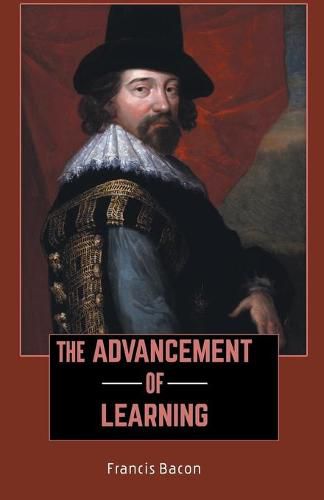Readings Newsletter
Become a Readings Member to make your shopping experience even easier.
Sign in or sign up for free!
You’re not far away from qualifying for FREE standard shipping within Australia
You’ve qualified for FREE standard shipping within Australia
The cart is loading…






This title is printed to order. This book may have been self-published. If so, we cannot guarantee the quality of the content. In the main most books will have gone through the editing process however some may not. We therefore suggest that you be aware of this before ordering this book. If in doubt check either the author or publisher’s details as we are unable to accept any returns unless they are faulty. Please contact us if you have any questions.
The Tvvoo Bookes of Francis Bacon. Of the proficience and aduancement of Learning, divine and humane. To the King. At London. Printed for Henrie Tomes, and are to be sould at his shop at Graies Inne Gate in Holborne. 1605. That was the original title-page of the book now in the reader’s hand-a living book that led the way to a new world of thought. It was the book in which Bacon, early in the reign of James the First, prepared the way for a full setting forth of his New Organon, or instrument of knowledge. The Organon of Aristotle was a set of treatises in which Aristotle had written the doctrine of propositions. Study of these treatises was a chief occupation of young men when they passed from school to college, and proceeded from Grammar to Logic, the second of the Seven Sciences. Francis Bacon as a youth of sixteen, at Trinity College, Cambridge, felt the unfruitfulness of this method of search after truth. He was the son of Sir Nicholas Bacon, Queen Elizabeth’s Lord Keeper, and was born at York House, in the Strand, on the 22nd of January, 1561. His mother was the Lord Keeper’s second wife, one of two sisters, of whom the other married Sir William Cecil, afterwards Lord Burleigh. Sir Nicholas Bacon had six children by his former marriage, and by his second wife two sons, Antony and Francis, of whom Antony was about two years the elder. The family home was at York Place, and at Gorhambury, near St. Albans, from which town, in its ancient and its modern style, Bacon afterwards took his titles of Verulam and St. Albans.
$9.00 standard shipping within Australia
FREE standard shipping within Australia for orders over $100.00
Express & International shipping calculated at checkout
This title is printed to order. This book may have been self-published. If so, we cannot guarantee the quality of the content. In the main most books will have gone through the editing process however some may not. We therefore suggest that you be aware of this before ordering this book. If in doubt check either the author or publisher’s details as we are unable to accept any returns unless they are faulty. Please contact us if you have any questions.
The Tvvoo Bookes of Francis Bacon. Of the proficience and aduancement of Learning, divine and humane. To the King. At London. Printed for Henrie Tomes, and are to be sould at his shop at Graies Inne Gate in Holborne. 1605. That was the original title-page of the book now in the reader’s hand-a living book that led the way to a new world of thought. It was the book in which Bacon, early in the reign of James the First, prepared the way for a full setting forth of his New Organon, or instrument of knowledge. The Organon of Aristotle was a set of treatises in which Aristotle had written the doctrine of propositions. Study of these treatises was a chief occupation of young men when they passed from school to college, and proceeded from Grammar to Logic, the second of the Seven Sciences. Francis Bacon as a youth of sixteen, at Trinity College, Cambridge, felt the unfruitfulness of this method of search after truth. He was the son of Sir Nicholas Bacon, Queen Elizabeth’s Lord Keeper, and was born at York House, in the Strand, on the 22nd of January, 1561. His mother was the Lord Keeper’s second wife, one of two sisters, of whom the other married Sir William Cecil, afterwards Lord Burleigh. Sir Nicholas Bacon had six children by his former marriage, and by his second wife two sons, Antony and Francis, of whom Antony was about two years the elder. The family home was at York Place, and at Gorhambury, near St. Albans, from which town, in its ancient and its modern style, Bacon afterwards took his titles of Verulam and St. Albans.